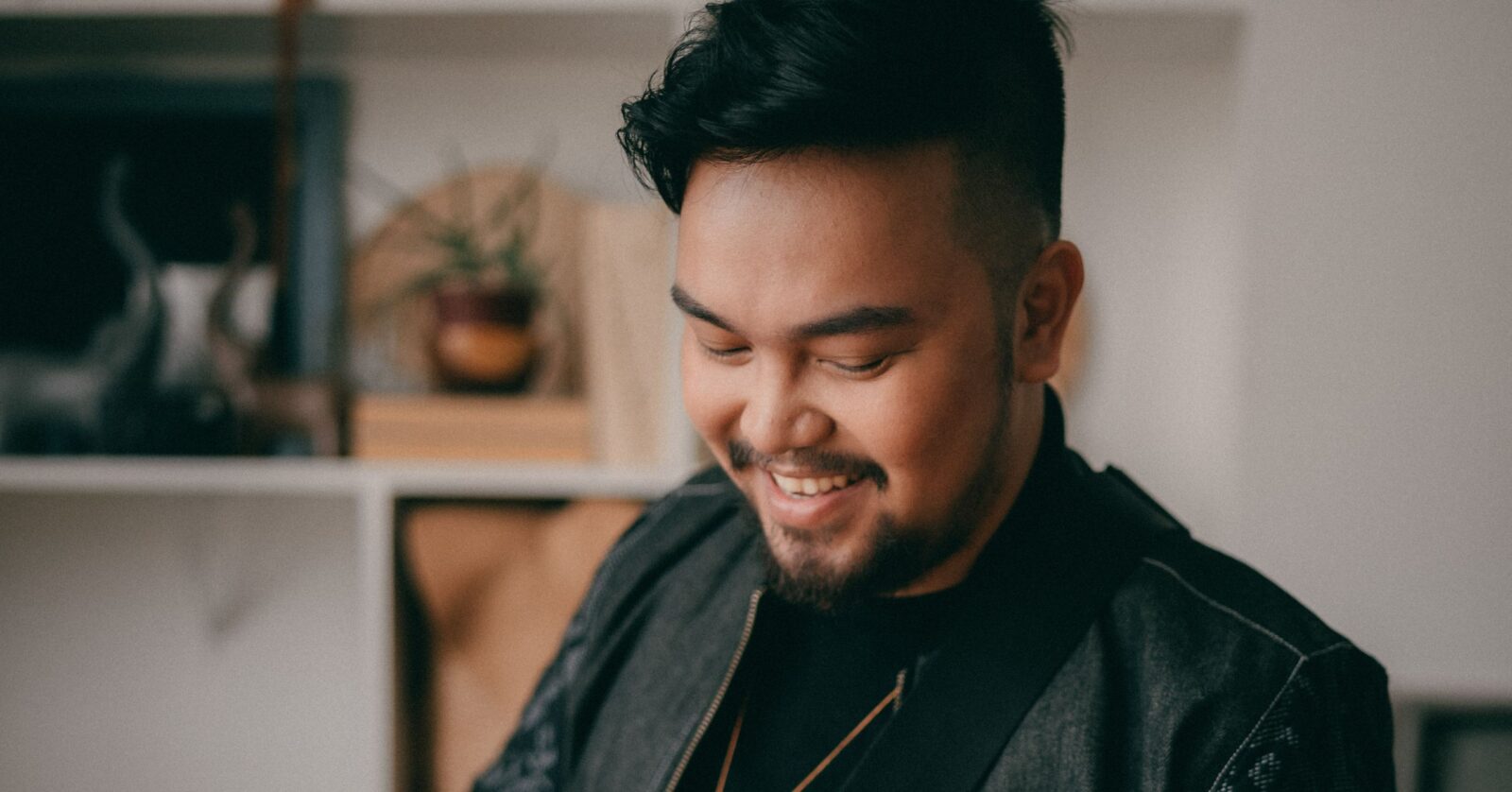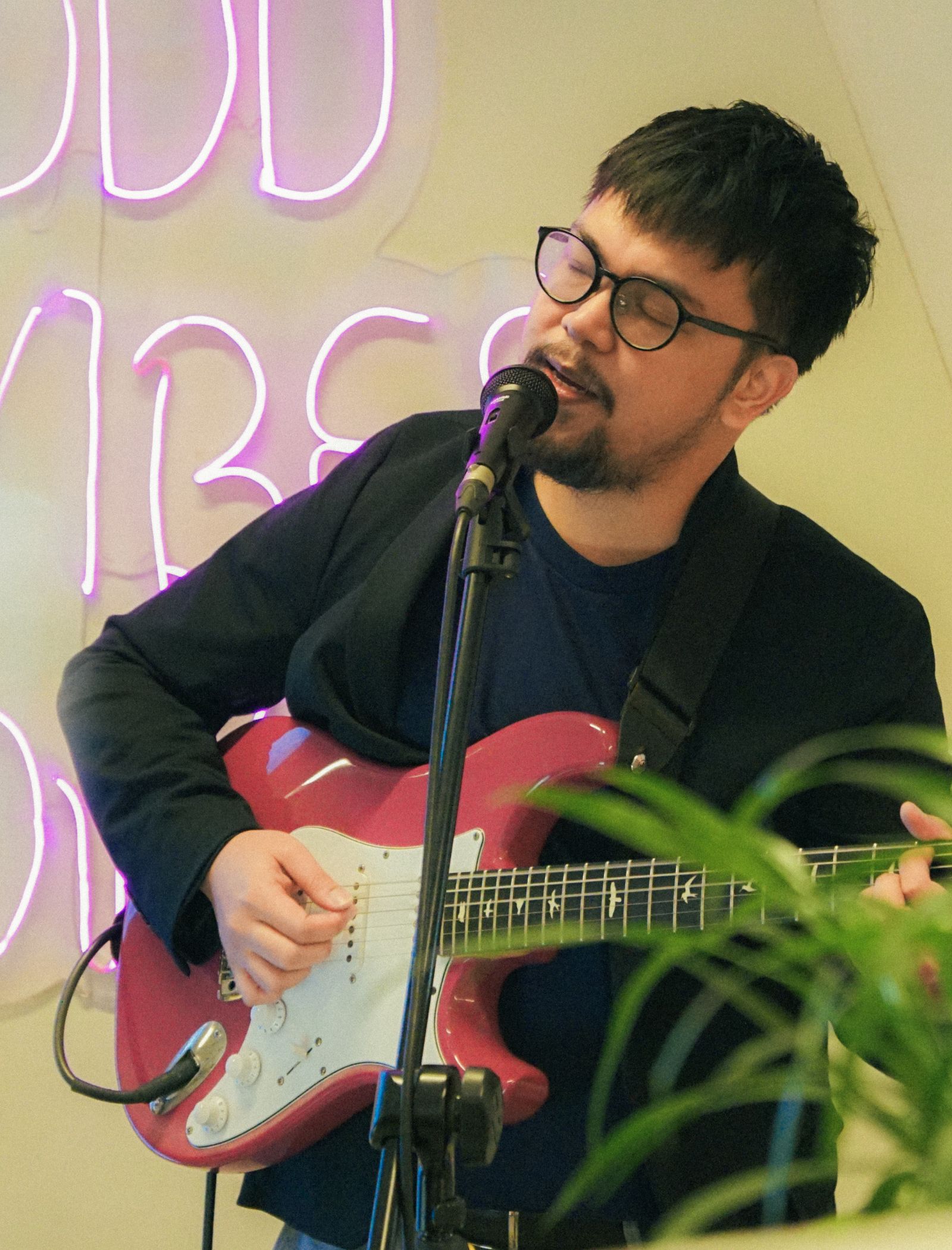Gab Cabangon On Shaping The Future Of Filipino Artists: “We want our songwriters to champion the diversity of Filipino culture.”
“Filipino artists can be just as good as international artists. I could even argue that, in some ways, we are better than other artists if given the same amount of resources.”

Courtesy of Gab Cabangon
Courtesy of Gab Cabangon
Music runs deep in Gab Cabangon‘s blood.
Beyond performing solo or with his indie band, KE, Gab plays a much larger role in shaping the present and future of the local music industry. Since 2019, he has served as the Program and Marketing Director of the PhilPop MusicFest Foundation, which now partners with Himig Handog for the annual PhilPop Himig Handog Songwriting Festival. His responsibilities include conceptualizing, developing, and promoting programs designed to inspire aspiring songwriters and help them share their skills and talents with a larger audience.
With a focus on supporting songwriters, PhilPop offers programs aimed at strengthening and developing the skills of Filipino songwriters through boot camps. These boot camp programs allow the songwriters to hone their craft and apply the learnings they gain from their coaches and mentors, who are respected industry professionals.
Meanwhile, Gab also works as the Executive Director of the Organisasyon ng Pilipino Mang-Aawit (OPM) (Organization of Filipino Singers), a non-profit welfare organization for professional singers. He works with the board to shape their programs and explore ways to better support singers, while also collaborating with stakeholders to protect artists’ rights.
Summing up his responsibilities, Gab sometimes jokes that he’s the punong abala (person in charge) of these two endeavors.

Courtesy of Gab Cabangon
As part of his work with PhilPop and OPM, Gab also plays a crucial role in discovering emerging artists who are worth investing in. The discovery often begins during songwriting competitions. “You can tell the very talented songwriters from the submissions. You can hear the songs that have the potential to stand out, both from an artistry standpoint and from the way they’ve conceptualized a song,” he shares. “It’s really a matter of giving them a platform to showcase how good they are.”
In addition to providing a platform for emerging talent, Gab emphasizes the importance of continuous learning and growth for songwriters. He credits the songwriters they collaborate with, who are passionate about the craft and have dedicated time and effort to sharing their knowledge with others aspiring to become great songwriters.
Beyond just offering learning opportunities, Gab highlights the drive and dedication that define aspiring musicians in the industry. He notes that while talent is important, putting in the work and being open to constant improvement are signs that someone is serious about taking their craft to the next level. “For me, it’s always about finding every opportunity for an artist to enhance their skill. I think culturally, music is one of those things that makes us proud as a country,” Gab adds.
Building on the importance of fostering local talent, Gab highlights the programs they have developed to help artists and songwriters share their talents and hold their own as artists. “In PhilPop, we always call this ‘music breaking borders’ in the hopes that one day, they will break borders not just locally, but also internationally,” Gab states. “I’ve always been on record saying that Filipino artists can be just as good as international artists. I could even argue that, in some ways, we are better than other artists if given the same amount of resources.”
Gab emphasizes that the songwriting programs and competitions provide avenues that encourage songwriters to write in their native languages. After all, OPM is more than just Tagalog and English; it also includes Bisaya, Ilocano, Bicolano, and others. “We want our songwriters to champion the diversity of Filipino culture,” he emphasizes. In advocating for the growth of Filipino music internationally, it all has to start at the grassroots level, particularly with independent musicians. According to him, the programs should put the focus on supporting independent artists, stating, “The reality is, in our industry, the support is abundant when you are a mainstream artist. The support is very different if you are a successful independent artist.”
As a singer-songwriter himself, Gab understands the challenges of having limited resources and support systems. He hopes that through OPM’s programs, such as OPM Spotlight and the Linggo ng Musikang Pilipino Festival (Filipino Music Week Festival), they can showcase the excellence of Filipino singers and provide them with a community and platform to pursue their craft, whether as full-time or part-time professional artists.
Furthermore, investing in education and training would help push Filipino music forward, as the need for more performance avenues and opportunities for fair pay remains crucial. “I feel like we need more spaces like that so that more artists can showcase their music, and at the same time, they don’t have to go home empty-handed after a gig because they ran out of time from commuting, going back and forth,” Gab adds.
When it comes to supporting local talent beyond financial means, uplifting Filipino artists starts with simply being a casual listener of Filipino music. It’s all about making the conscious effort to consume more OPM music, and as Gab states, “I think access is no longer an excuse.”
According to Gab, a rough estimate of around 60 to 70% of the public market’s music consumption is foreign, while only 30 to 40% is local. “It would be nice to see a more balanced consumption of Filipino music, if not a bigger share for local music,” Gab says. He further emphasizes the need for Filipino music to grow with the support of listeners and consumers. “I really hope people will explore Filipino music, regardless of genre or artist. Expanding your [musical] palette is key. I can’t stress enough how talented we are.”
As consumers, it all starts with giving new artists a chance. Even with just a first listen, it’s all about being open and giving them that opportunity to have their music be heard. “We’re not asking the consumers to replace international music with just strictly local,” Gab adds. He also emphasized the importance of preserving diverse aspects of Filipino music, briefly touching on the music of Indigenous Peoples (IP) communities. He noted that exploring this music is key to understanding how Filipino music has evolved over the decades and centuries.
In discussing the influence of external factors on Filipino music, Gab also reflects on his own roots, as the conversation wouldn’t be complete without mentioning his father, Noel Cabangon, former president of the Filipino Society of Composers, Authors and Publishers (Filscap) and a respected singer-composer in the OPM industry. Reflecting on his father’s influence, he shares, “I always go back to the excellence of craft and love for Filipino culture. I also believe that we should support our artists, not just from a financial standpoint, but also by respecting their rights as professionals.”
Building on the idea that music is more than just a form of pleasure or escape, Gab emphasizes its power to raise social awareness about society’s realities and the stories of the Filipino people. In closing, Gab highlights the importance of originality and innovation, stating that these are key to progressing as a culture and society: “Respecting and honoring the past, while also creating something new, can both happen at the same time.”
